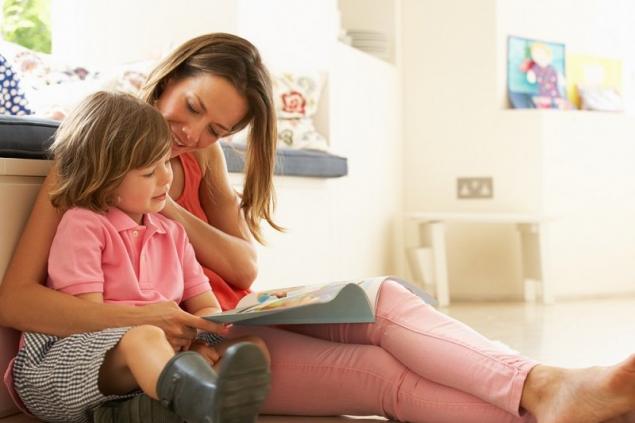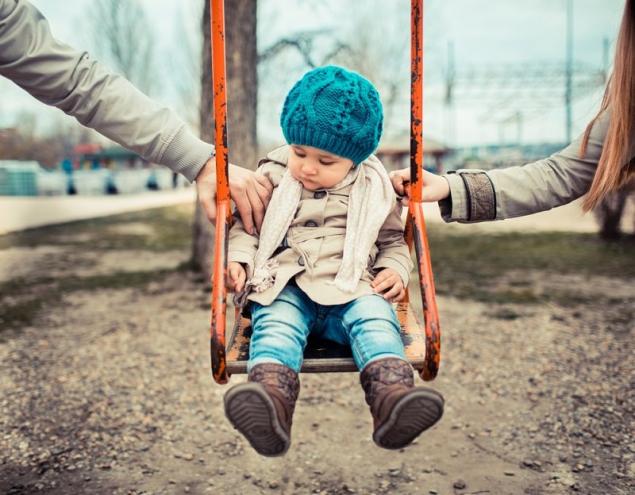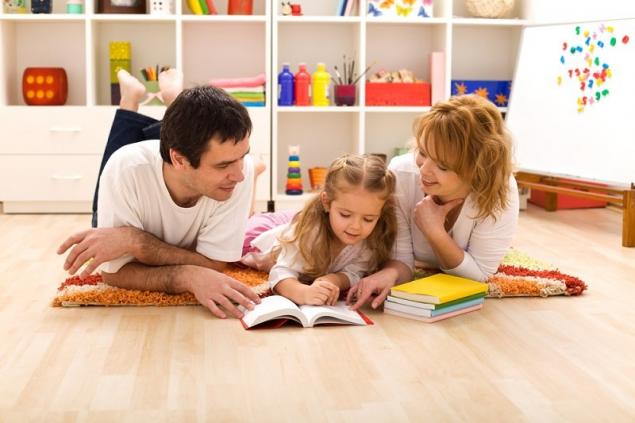166
What questions should not be asked to the child
The child is a very sensitive and absorbent creature, like a sponge. One utterance or question can both inspire him and bring him down from heaven to earth.
There are children who find it difficult to get used to kindergarten. For them, this is a period of some break with their parents and socialization in society.
The child reduces the amount of communication with the mother, who knows how to understand him without words and is always on her side and learns to explain with peers. For the first time in his life, he becomes independent.

When a mother picks up a child from kindergarten, she usually immediately asks how the day went without her. She didn’t see him and therefore couldn’t control him.
Having learned everything, gives him his installations. Which become law for the child, because the parent is still an authority for him.

DepositPhotos
Not all mothers realize that some of these issues are blatantly harmful to the baby. For example, “How did you eat today?” Unconsciously, he is asked with a barely concealed anxiety in his voice, which the child immediately catches.
Thus, the parent makes the child feel guilty or proud depending on whether he ate soup, patty and porridge.

DepositPhotos
To find out if he ate at all, it’s better to ask, “What was the most delicious?” If your child eats with an appetite, he will tell you.
As Dr. Komarovsky says, “A child knows best when and how much to eat.” The only “cure” that solves the problem of selective appetite in 100% of cases is hunger.

DepositPhotos Another tricky question: “Did no one hurt you today?” Parents often sin. The very form of its construction makes you think about offense and offenders, look for the negative.
The question already contains the assumption that the kindergarten environment is hostile and one should expect resentment at any time.
The child focuses on the “offensive” actions of children from his group, may even begin to provoke other children with his behavior, so that they “offended” him and there was something to tell his mother.

DepositPhotos
She will ask, she will complain and she will regret it. The question generates a reaction. To find out if he has good relationships with his peers, if he has friends, it is better to ask: “Who did you play with today?”
In older groups or in circles, children are already given something like assessments. A typical question that many parents sin about is: “What did you get today?”

The expected answer is to list the number of fives or twos, suns or clouds. A formal approach that forms an incorrect attitude to the learning process.
It is much more useful to ask, “What have you learned?” What did you learn? After all, every lesson in the garden is a new experience, emotions, impressions, bruises and bumps ...
This is what a child should learn to talk about. As long as he is young, it will be easy for him to learn to be sincere.

DepositPhotos
"How's it going?" Another on-duty and seemingly innocuous question that is sometimes annoying. Success is not every day, and the question gives rise to the feeling that you must have success every day. And behind him and complexes, when they are not...
A useful question for older people is, “If you could have the day again, what would you change?” Today’s children are growing faster than previous generations.
They can analyze at least their day at five. Thinking about the answer, they will be able to learn to sum up, evaluate.

DepositPhotos
You need to talk to the baby. The first forms of communication between children and adults It depends on the behavior of his closest relatives. Because the child is copying the elders.
Therefore, when asking him a question, you need to think whether it would be convenient to answer it yourself. Ask in such a way as to form a realistic and positive attitude towards peers, events, and life. If this is not done, the child may simply close off the parent as an aggressor.
Communication of preschool children with adults It is the basis of the educational process. For more tips for young parents on parenting, see our next articles. Follow the links.
There are children who find it difficult to get used to kindergarten. For them, this is a period of some break with their parents and socialization in society.
The child reduces the amount of communication with the mother, who knows how to understand him without words and is always on her side and learns to explain with peers. For the first time in his life, he becomes independent.

When a mother picks up a child from kindergarten, she usually immediately asks how the day went without her. She didn’t see him and therefore couldn’t control him.
Having learned everything, gives him his installations. Which become law for the child, because the parent is still an authority for him.

DepositPhotos
Not all mothers realize that some of these issues are blatantly harmful to the baby. For example, “How did you eat today?” Unconsciously, he is asked with a barely concealed anxiety in his voice, which the child immediately catches.
Thus, the parent makes the child feel guilty or proud depending on whether he ate soup, patty and porridge.

DepositPhotos
To find out if he ate at all, it’s better to ask, “What was the most delicious?” If your child eats with an appetite, he will tell you.
As Dr. Komarovsky says, “A child knows best when and how much to eat.” The only “cure” that solves the problem of selective appetite in 100% of cases is hunger.

DepositPhotos Another tricky question: “Did no one hurt you today?” Parents often sin. The very form of its construction makes you think about offense and offenders, look for the negative.
The question already contains the assumption that the kindergarten environment is hostile and one should expect resentment at any time.
The child focuses on the “offensive” actions of children from his group, may even begin to provoke other children with his behavior, so that they “offended” him and there was something to tell his mother.

DepositPhotos
She will ask, she will complain and she will regret it. The question generates a reaction. To find out if he has good relationships with his peers, if he has friends, it is better to ask: “Who did you play with today?”
In older groups or in circles, children are already given something like assessments. A typical question that many parents sin about is: “What did you get today?”

The expected answer is to list the number of fives or twos, suns or clouds. A formal approach that forms an incorrect attitude to the learning process.
It is much more useful to ask, “What have you learned?” What did you learn? After all, every lesson in the garden is a new experience, emotions, impressions, bruises and bumps ...
This is what a child should learn to talk about. As long as he is young, it will be easy for him to learn to be sincere.

DepositPhotos
"How's it going?" Another on-duty and seemingly innocuous question that is sometimes annoying. Success is not every day, and the question gives rise to the feeling that you must have success every day. And behind him and complexes, when they are not...
A useful question for older people is, “If you could have the day again, what would you change?” Today’s children are growing faster than previous generations.
They can analyze at least their day at five. Thinking about the answer, they will be able to learn to sum up, evaluate.

DepositPhotos
You need to talk to the baby. The first forms of communication between children and adults It depends on the behavior of his closest relatives. Because the child is copying the elders.
Therefore, when asking him a question, you need to think whether it would be convenient to answer it yourself. Ask in such a way as to form a realistic and positive attitude towards peers, events, and life. If this is not done, the child may simply close off the parent as an aggressor.
Communication of preschool children with adults It is the basis of the educational process. For more tips for young parents on parenting, see our next articles. Follow the links.
























